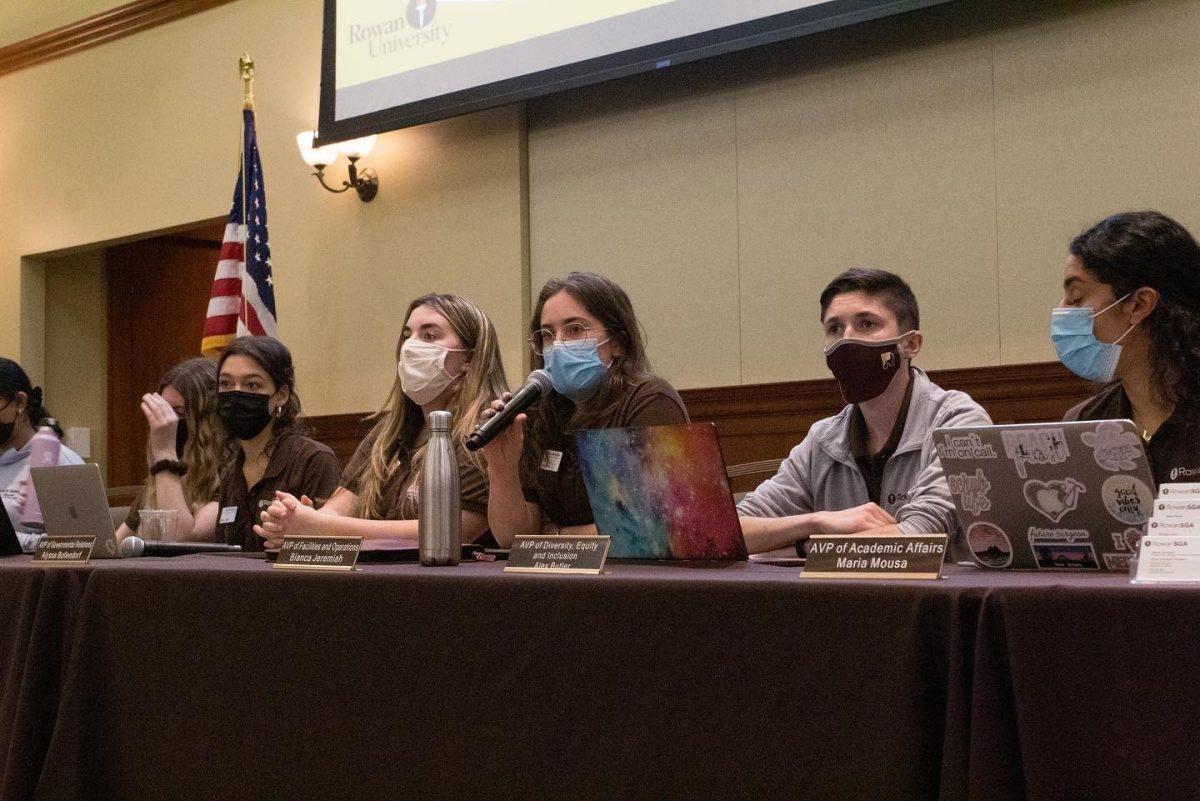Considering last year’s outrage at the 2023 SGA Budget, the release of the budget for the 2024 fiscal year has barely been a blip on people’s radars.
The SGA Budget is the official source for all SGA chartered and institutionalized organizations in order for them to host activities, organize meetings and make a positive contribution to Rowan’s community through its activities. Prepared annually by the Student Financial Control Board (SFCB), the total SGA budget is predicted by the university Budget Office primarily through their guess towards the next year’s enrollment. In the case of 2024, the Budget Office predicted a decrease in enrollment that dropped SGA’s total budget by 2.5% this year.
“So basically they [the Budget Office] have all these fancy models to predict enrollment and whatever the fancy models tells us is basically how it works,” said Landon Nicholson, the chief financial officer (CFO) of SGA for the 2022-2023 academic year. “It’s hard because it’s set in stone way before the year starts… and that’s just how the Budget Office works and how they kind of have to work is planning ahead like that.”
Based on enrollment predictions from the Budget Office, each undergraduate student’s SGA fee of $91.50 is totaled and split between SGA and Rowan After Hours (RAH) — with $56.25 going to SGA and $35.35 going to RAH. The total amount going towards SGA is what the budget then becomes. For 2024, the SGA Budget will be $1,395,668.00, a total loss of $35,699 from 2023.
However, despite this overall decrease in budgets, the total amount of money allocated to clubs rose by $16,668. This is because, although the Budget Office’s allocated amount decreases, the majority of the loss was taken from the SGA operating funding rather than from solely the club accounts.
Although the SGA Budget is primarily used for club funding, a portion of this money is also used to run SGA and its services such as The SHOP and ProfLink. Additionally, this budget is what provides elected SGA members with their tuition scholarships and stipends. In the 2023 budget, when the total SGA allocation was cut by 14.3%, the SGA operating budget saw no decrease but rather rose by roughly $13,000. This year, the SGA operating budget was cut by over $50,000.
“I looked a lot at SGA internal accounts because I felt like if anyone, in my opinion, we [SGA] should be the first people to sacrifice before the clubs and orgs,” Nicholson said. “So we were able to distribute the cuts really well, I feel like because we just looked mostly at our internal accounts and how we could reduce that and keep clubs at about the same.”
According to Nicholson, the majority of this reduction came from a bylaw he had created in November that cut the compensation of executive members. Prior to this bylaw, scholarship allocation to executive members was decided based on a percentage of the SGA Tuition Account. The president, executive vice president, and CFO were entitled to 57% of the account, and the recording secretary and assistant vice presidents received the remaining 43% — although neither group could receive more than their estimated cost of attendance.
However, since a majority of SGA executive members received outside scholarships or academic aid from Rowan, Nicholson noted that a large portion of the SGA Tuition Account was going unused. Once bylaw 301-16 takes effect in 2024, SGA executive members will receive set scholarships throughout the year. In the future, the president, executive vice president and CFO will each receive $8,000 in scholarships and all executive members will receive a $2,000 stipend distributed quarterly.
“We cut executive compensation [in November]… and that saved us like $35,000,” Nicholson said. “And also we just kind of were able to combine a couple of accounts that we felt were redundant.”
Although the SGA operating accounts took the largest cuts for the 2024 fiscal year, some clubs still saw budget reductions overall. According to Nicholson and incoming CFO Kavin Haldo, clubs asked for over $450,000 more in funding than the total SGA allocation. Furthermore, SGA chartered 10 additional clubs this year that also have the opportunity to ask for funding — stretching the budget across a total of 163 organizations.
The Rowan University Puppet Artists saw one of the biggest cuts among clubs, with their budget dropping from $5,000 to $200 for the 2024 fiscal year, although $100 to $200 is the standard allocation for clubs who do not attend their budget hearings. Other organizations such as Active Minds also saw a budget decrease of $1,600 to $570, the Robotics and Automation Society’s budget went from $5,900 to $3,000, and the Society for Human Resource Management’s budget went from $1,850 to $1,000.
Other clubs, such as Rowan Emergency Medical Services (EMS), saw an increase in their budget from the previous year. Rowan EMS entered 2023 with a budget of $40,000 but quickly ran out of funding due to the increased cost of medical supplies and a rise in emergency calls made on Rowan’s campus.
“So we went from $51,000 [in the 2022 fiscal year] to $40,000 [in 2023],” said Vernon Howery, the chief of operations for Rowan EMS. “And we ran out of money in the past month or so, so we kind of had to go to SGA and say, ‘Look, we can’t operate this way.’”
As of April 26, 2023, Rowan’s EMS has responded to 803 calls across campus — which, according to assistant chief Maribeth Novsak, is nearly double the amount of calls EMS responded to in the 2022 academic year.
“We have had a 75% increase in the semester [for calls],” said Shriya Patel, sergeant treasurer of EMS. “So we were nearing what our full year number of calls were within one semester.”
At the Monday, April 17, SGA Senate meeting, the budget passed through the senate with 143 in favor and five against. Last year, the budget passed with only 77 in favor and 55 against.
“All of the clubs who got a decrease kind of like, really understood why they got a decrease which I’m really happy about,” said Haldo regarding how he and Nicholson both aimed to be transparent about all of their budget decisions with the different organizations.
“We’re all trying to make the best of a difficult situation,” Nicholson said. “And sometimes, you know, especially when it’s a difficult situation like budget cuts, there really is no best way to go about it… It’s a blessing in itself that we don’t have to deal with 14.3% because those numbers would be nuclear.”
For comments/questions about this story tweet @TheWhitOnline or email [email protected]























































































































































!["Working with [Dr. Lynch] is always a learning experience for me. She is a treasure,” said Thomas. - Staff Writer / Kacie Scibilia](https://thewhitonline.com/wp-content/uploads/2025/04/choir-1-1200x694.jpg)










































